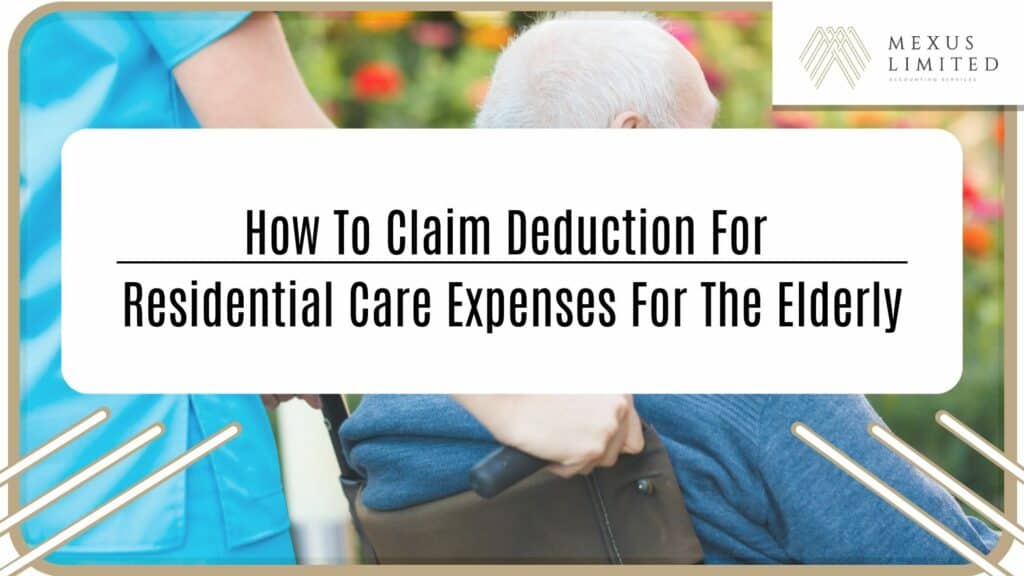How to claim deduction for residential care expenses for the elderly

If the taxpayer or his spouse has paid for the expenses of the parent/grandparent’s residential home, he may claim a deduction for those expenses, provided he meets the following conditions:
The elderly person must be a parent/grandparent of the taxpayer or his or her spouse residing with him or her
The elderly person is aged 60 or above in the year of claim
the elderly person is under the age of 60 in the year of claim but is eligible to claim Disability Allowance from the Government
the care expenses are paid to a Hong Kong residential care home licensed under the Residential Care Homes (Elderly Persons) Ordinance, the Disabled Persons Ordinance or the Nursing Home Registration Ordinance
The deduction of care expenses is limited to basic accommodation, food, nursing care and miscellaneous expenses
the maximum amount of deduction is based on the annual specified amount
the taxpayer does not claim the elderly person’s parent/grandparent allowance in the same year of assessment
No one other than the taxpayer claimed the elderly person’s residential care expenses deduction in the same year of assessment. The taxpayer must agree with the other claimant to nominate the taxpayer to claim the deduction, otherwise the taxpayer will not grant the deduction to either party. Otherwise, the IRD will not grant the deduction to any party.
The elderly residential care expenses must be deducted before the allowance is granted, i.e., the elderly residential care expenses deduction and the dependent parent/grandparent allowance cannot be claimed at the same time. If a taxpayer is not considering claiming the elderly residential care expenses deduction, he may choose to claim the parent/grandparent allowance, but before he does so, he will have to compare which deduction will result in a lower tax liability.
If a taxpayer’s parent/grandparent reaches age 60 in a tax year and has paid residential care expenses for that year, the taxpayer can claim a deduction for residential care expenses paid before the elderly person reached age 60.
The taxpayer should remember to retain the residential care receipts issued by the home for inspection by the IRD at any time.
The above information is for reference only. If you have any questions, we welcome your tax inquiries.
